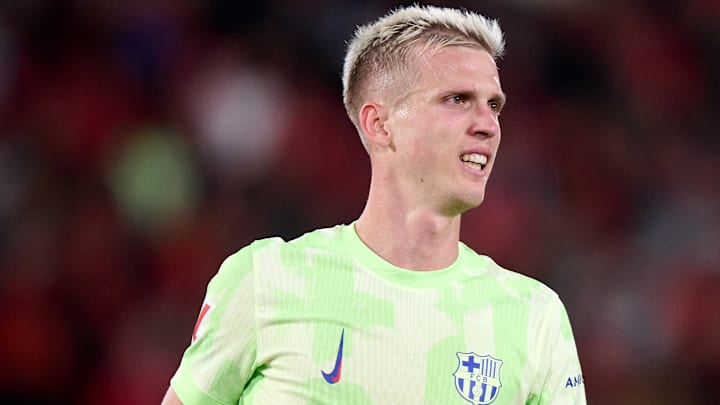As a consequence, just a few days before the end of the month, both Dani Olmo and Pau Víctor, Barcelona's two signings this season, may lose their LaLiga registration. Over the last few seasons, it has become clear that another economic challenge, one of speed and creative ingenuity, is needed to find the balance and viable financial means. The pieces are finally on the table, only this time, time itself is running against them.
Follow Playing for 90 on X (Twitter).
Dani Olmo and the urgency for a solution
Dani Olmo, signed after his spell at RB Leipzig, was only registered temporarily owing to Andreas Christensen's long-term injury. However, with the Danish defender back piecemeal and 80% of Olmo's registration quota already used, Barcelona needs a permanent solution to keep the midfielder active in the competition. Meanwhile, Pau Víctor is also in a similar situation.
It is a recurring problem for the Culés: lack of room in the wage bill and the constant fight against the strict financial regulations of LaLiga. It is, therefore, no surprise to see the management of the club rushing to finalize agreements that make sure the signings are permanent and not temporary solutions.
Deco, Barcelona's sporting director, admitted that it's a challenge, but during an event in Castelldefels, he dodged giving any details. He only diplomatically reached the point of saying they are "working on the registrations."
Nike, Barça Vision, and the VIP boxes
In all, Barcelona's plan encompasses various activities, most already underway, but none quite easy. First and foremost comes the renewal of the contract with Nike. The call for an Extraordinary Assembly for the 21st reflects how much this is burning. For LaLiga to ratify the deal with the sportswear giant - improved revenue with bonuses adjusted accordingly - will require members' approval of the same.
If this plan doesn’t work, other, more drastic options arise: securing a new investor for Barça Vision, the club’s digital future project; giving up revenue from the VIP boxes for the next 20 years in exchange for an immediate €100 million cash injection; or finalizing new sponsorship agreements to provide short-term relief to the wage bill.
None of these options come without a cost. For example, giving up VIP box revenue would mean forgoing a secure and lucrative long-term revenue stream.
The ghost that won't go away
LaLiga's financial control has been Barcelona's biggest headache in recent years. Player signings and wage management must adhere to the league's strict limits. Every season, the club needs to make room, sell players, or renegotiate more favorable contracts to register new signings.
The optimism from the club is there, but until those registrations are confirmed, the tension remains. It's a process Barcelona knows all too well: one where the margin for error is razor-thin.
Balancing act
Barcelona remains on a tightrope between sporting success and financial balance. While the team fights to stay competitive in LaLiga, the board must race against time to resolve the cases of Dani Olmo and Pau Víctor.
These are times when fans await good news, while the club's interest stays with the ticking clock and the numbers that need to balance. After all, sorting out the present can't be done at the cost of creating greater problems in the future.
